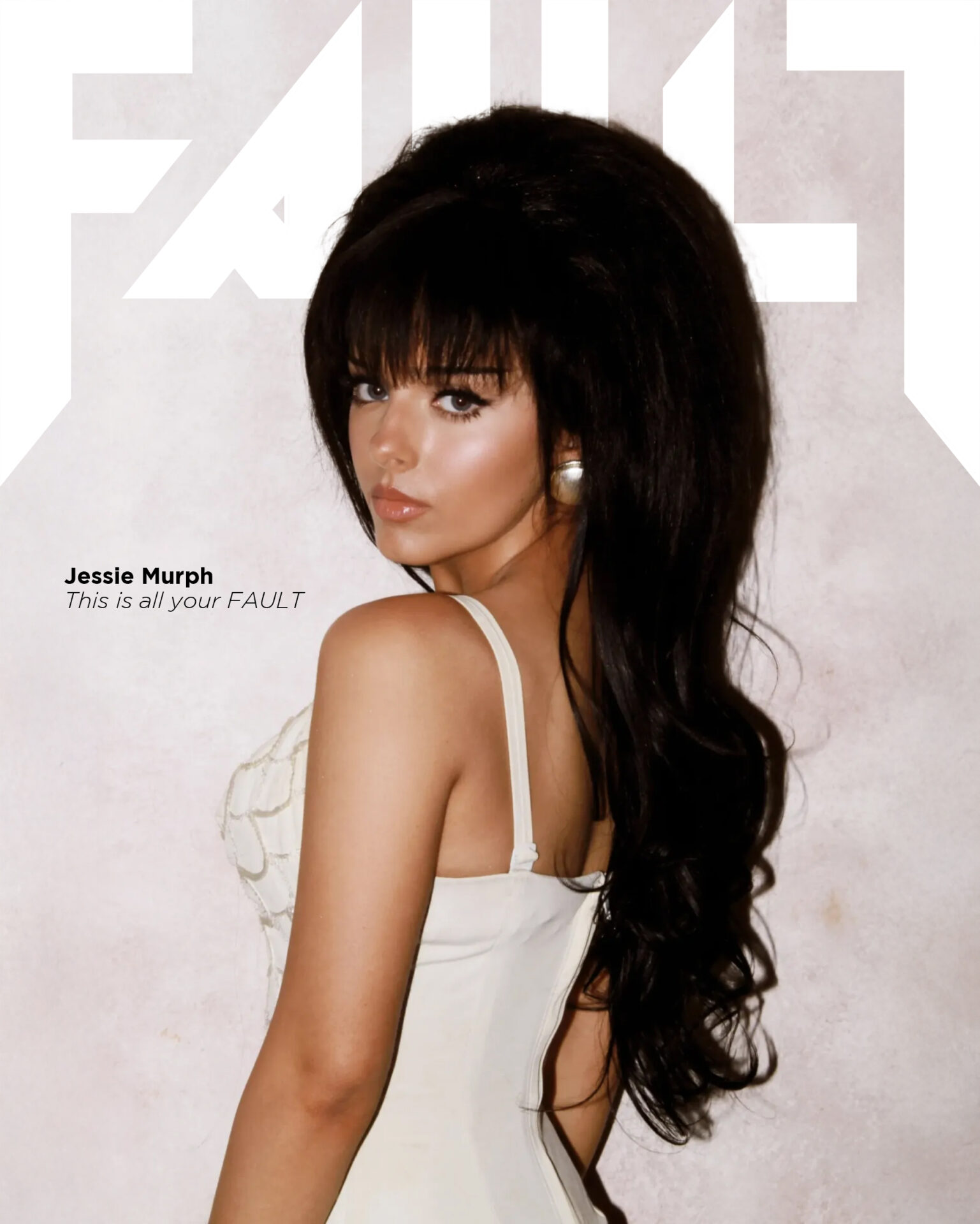Jessie Murph on Sex Hysteria and Writing Without Filters

In the wake of her explosive debut, Jessie Murph returns with Sex Hysteria, a sophomore album as raw, unfiltered, and emotionally exposed as its title suggests. The 20-year-old Alabama native isn’t just sharing stories; she’s opening emotional floodgates. Laced with themes of trauma, reclamation, sexuality, and identity, Sex Hysteria sees Murph double down on her truth-telling, offering listeners a front-row seat to the chaos and catharsis of young womanhood.
Already boasting two Billboard Hot 100 hits and a standout collaboration with Lil Baby, the record solidifies Jessie’s place in pop’s new vanguard, where heartbreak is worn proudly, and artistic vulnerability isn’t a risk, but a rite of passage.
We caught up with Jessie to talk emotional risk, songwriting as therapy, and the tracks that left her changed forever.
FAULT Magazine: First things first, what inspired the title, Sex Hysteria?
Jessie Murph: Well obviously it’s the name of one of the songs on the album. But I also felt like Sex Hysteria did a good job of kind of summarizing or wrapping up the different parts of the cycle that I am experiencing on the album. It’s not so much about sex per se but how sometimes sex can be mistaken for love and vice versa. And the chaos and hysteria that this cycle leads to.
FAULT Magazine: What emotional or creative risk felt the biggest for you while making this record, compared to your debut?
Jessie Murph: There are some really vulnerable and honest songs on this record that I would’ve been afraid to put out previously. Saying some of the things I’m saying to the people I’m saying it to on these songs was definitely the biggest emotional risk I think I’ve ever taken.
FAULT Magazine: How did you strike that emotional balance across a tracklist that covers such a wide spectrum of emotion and themes?
Jessie Murph: Well for the most part when I go in the studio I just write about what I’m feeling that day. I have a hard time faking or writing about something that I’m not genuinely experiencing or feeling. So a lot of the balance of emotions is just a genuine glimpse into the different ways that I feel. But going back to the cycle and the hysteria, when it came to picking which songs made the album and which didn’t, I did want to make sure all of the emotions I had were pretty equally represented.
FAULT Magazine: It’s a very personal record—were there times during the writing process where you felt like you were uncovering things about yourself in real-time?
Jessie Murph: Definitely. Writing is such a therapeutic and introspective process for me. I realize things and make connections all the time. It’s also just how I get out my feelings and emotions because it’s so much easier for me to open up when I’m writing or singing than just through speaking.
FAULT Magazine: How did the collaboration with Lil Baby come about?
Jessie Murph: I have been such a huge fan of his for so long. I think in every interview I’ve done I’ve shared that he is my dream collaboration. So when I made Best Behavior I felt like it was a song of mine that I could really see him on. I’m so grateful that when he heard it he liked it and wanted to jump on.
FAULT Magazine: You’ve been candid about reclaiming your body, voice, and desires in this record. Was there a track that helped you feel most empowered in that process?
Jessie Murph: That’s a good question. Probably Heroin. I’m not sure how much it had to do with reclaiming for me but that is a song that made me feel empowered and proud just through making that record. It’s a type of song I’ve always dreamt of making so to have it on this album feels like a dream.
FAULT Magazine: How has performing live influenced your songwriting, or changed your relationship to older songs?
Jessie Murph: It just makes it that much more evident how much my songs and lyrics affect other people. Having people relate to my music is obviously something I would always want and have dreamed of. But there’s nothing like witnessing it live in person. And when I take those experiences back into the studio with me it just means I know I’m writing these songs for other people too, not just myself.
FAULT Magazine: What is your FAULT?
Jessie Murph: Does a shopping addiction count? :)